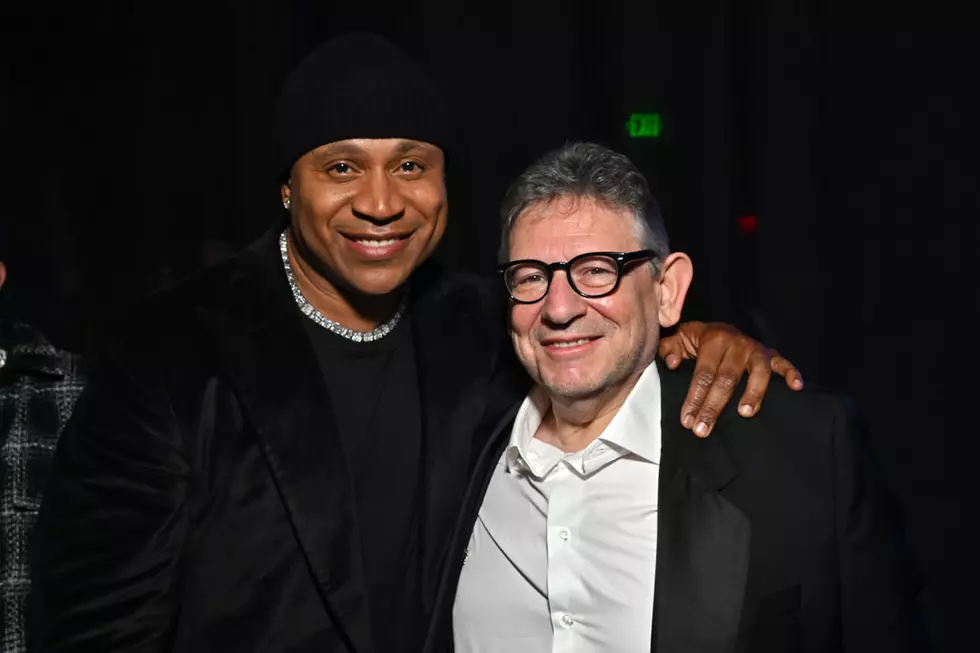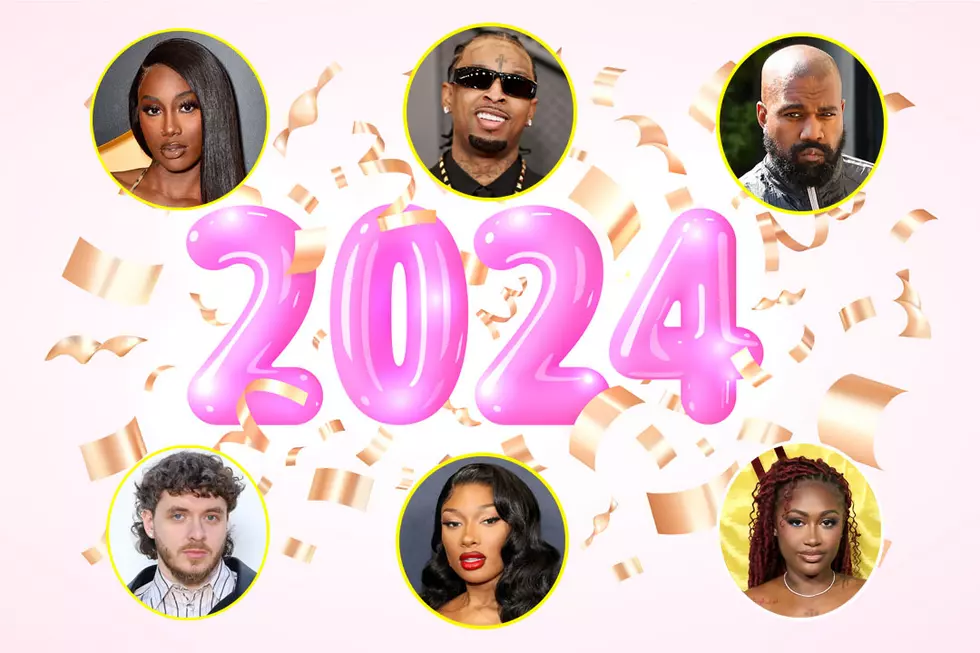
Stealing Cars With Bishop Nehru
On a Saturday afternoon in Spring Valley, N.Y., Bishop Nehru walks out into the sunny, toy-strewn backyard of the modest house where he lives with his parents and says he doesn’t want to play trampoline sports today. Originally, the lanky 17-year-old rapper had arranged to spend the afternoon with me at Bounce!, a Rockland County fitness facility where you play games like dodgeball and basketball while jumping on a system of interconnected trampolines, presumably having more fun than you ever thought possible. But right now, he’s not feeling it. “There's no one here, none of my friends,” he says, squinting in the light. “I just think it would be kinda weird to go by myself.”
That solitary quality has defined Bishop, born Markel Scott, since he began making a name for himself as 15-year-old whiz kid with a gravelly, old-school flow. Where the latest crop of young, boom-bap-worshipping New York rappers have been largely defined by their crews—Pro Era, Flatbush Zombies, World’s Fair, even the A$AP Mob, though their sound is decidedly different—Bishop is mostly set apart by his age, particularly the way it contrasts with his sophisticated ear for gnarled, soulful beats that harken back to the 1990s. With a name plucked from Tupac's 1992 film Juice and an aesthetic drawn from an era that came and went before he was born, Bishop’s schtick can feel calculated in the way it seems to target a very specific type of regressive hip-hop fan, but the songs on his two mixtapes, Nehruvia and Strictly Flowz, both out this year, reveal a nimble lyricist with ambitions beyond pandering to purists.
After deciding that we weren’t going to make it to trampoline heaven, Bishop takes me inside the house to his room, an equipment-filled but surprisingly neat space that also serves as his home studio. An Illmatic poster hangs on the wall along with a hand-drawn picture of a cat, while a copy of Watchmen peeks out from under a stack of X-Box games and his MPC lurks in a corner along with a pile of records. He plays me some jazz songs he’s been getting into lately (Michael Henderson, George Benson) before settling on a Method Man track and firing up Grand Theft Auto V.
Within minutes, he’s cruising the game’s vividly realized streets in a stolen car, offering up critiques of the gameplay (“The cops are so hard to lose”) and laughing gleefully as he wreaks havoc on some oblivious pedestrians. Soon, he’s engaged in a rather mundane mission where he’s acting as the designated driver for a drunk friend who ends up puking out the window of the car. He lets me play for a bit but I quickly get shot by some hillbillies attacking a woman on the side of a road. “This is basically my day right here,” he observes.
After a recent gig opening for Kendrick Lamar in Brooklyn—which led to a much buzzed-about Fuse clip of the two hanging out together—and the announcement of an upcoming collaborative project with elusive underground icon DOOM, Bishop has suddenly made the leap from budding hobbyist to weary professional. With all the media requests and live shows, he’s placed school on the backburner, instead choosing to stay home and work on music, much to his mother’s chagrin.
“Now that I'm kinda rising up in the game, I'm at the point where I know what I want to do and I can make this my job,” he says. “It's kinda difficult to balance it with school, 'cause school is to help you find your job, but I already have this job right here that's doing pretty good. It's hard but I'll get through it.”
As his music might have you expect, Bishop sounds mature for his age, speaking candidly and honestly about his goals and plans for the future while also acknowledging the inherent bat-shit weirdness of going from making music in between marathon video game sessions in your bedroom to opening for the Wu-Tang Clan in London on a tour celebrating an album older than he is. He talks about wanting to go to college to study film and says he’s been writing screenplays, mostly comedy and action shorts, which he taught himself to write by Googling, “how to make a movie.” It’s that self-sufficiency and drive that’s helped him gain the respect of so many rap veterans.
“Everything I thought about his style from when I first heard his stuff was matched when I met him in person,” explains DOOM on the phone from London. “His delivery, his whole rhyme scheme, I could tell he was a natural talent...I think he actually exceeded what I expected. The dude is a real smart cat. I can see him going far in this business.”
The question is this: How far does Bishop Nehru even want to go in this business? Though he’s visibly excited about working with DOOM, who he credits with inspiring him to be a better lyricist, and he’s psyched about the solo project he’s developing for after that—”I know it’s gonna be a radio smash,” he says about one song—there’s a sense that Bishop’s restless brain can’t be contained by hip-hop. At multiple points in our conversation he says he’s “mastered music,” and he becomes most animated when we talk about his favorite movie directors (Quentin Tarantino, Judd Apatow, Steven Spielberg) and his other ongoing obsession: video games.
To feed that passion, we decide to hit up the local GameStop; despite his GTA prowess, Bishop doesn’t have his driver's license yet, so we ask his mom, Natasha, for a ride. The store is nestled in a large strip mall that bears all the hallmarks of suburban ennui: Sleepy's, Bed Bath And Beyond, Michael's. It’s exactly the type of pleasant but unexciting town that sends a brainy kid into his bedroom where he can create his own fantasy world. “Did you reserve more games?” asks Bishop’s mom as we draw closer. He mumbles a response.
Inside the store, he’s back in his element, eyeing games he’s either already played, like Borderlands 2 (“I hated it”), or ones he wants to play, like NBA 2K14. At one point while staring at the games on display, he points out the newest WWE title on the shelf and I ask Bishop who his favorite wrestler is. He quickly makes his pick: Goldberg. This is a very Bishop Nehru-vian selection: Goldberg was a bald juggernaut who barreled through opponents with a determined and mechanical efficiency; he also won the WCW Heavyweight Belt in 1998 when Bishop was two years old and peaked in popularity before Bishop was ten. I tell him I watched Goldberg's title match live on TV and he looks at me like I just emerged from a time-traveling Delorean. It's like for a moment he forgot the 1990s were real. —Dan Jackson
More From XXL









